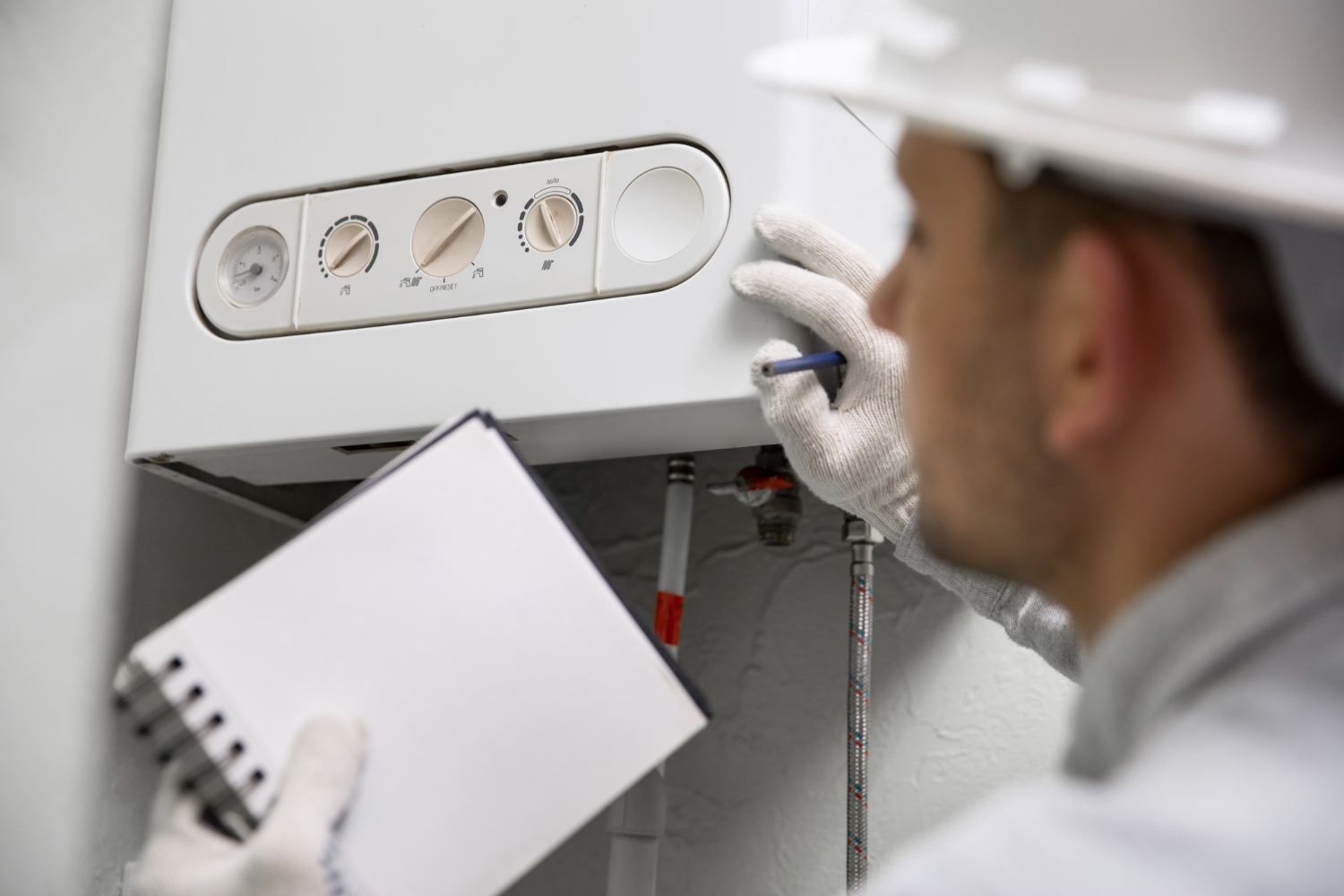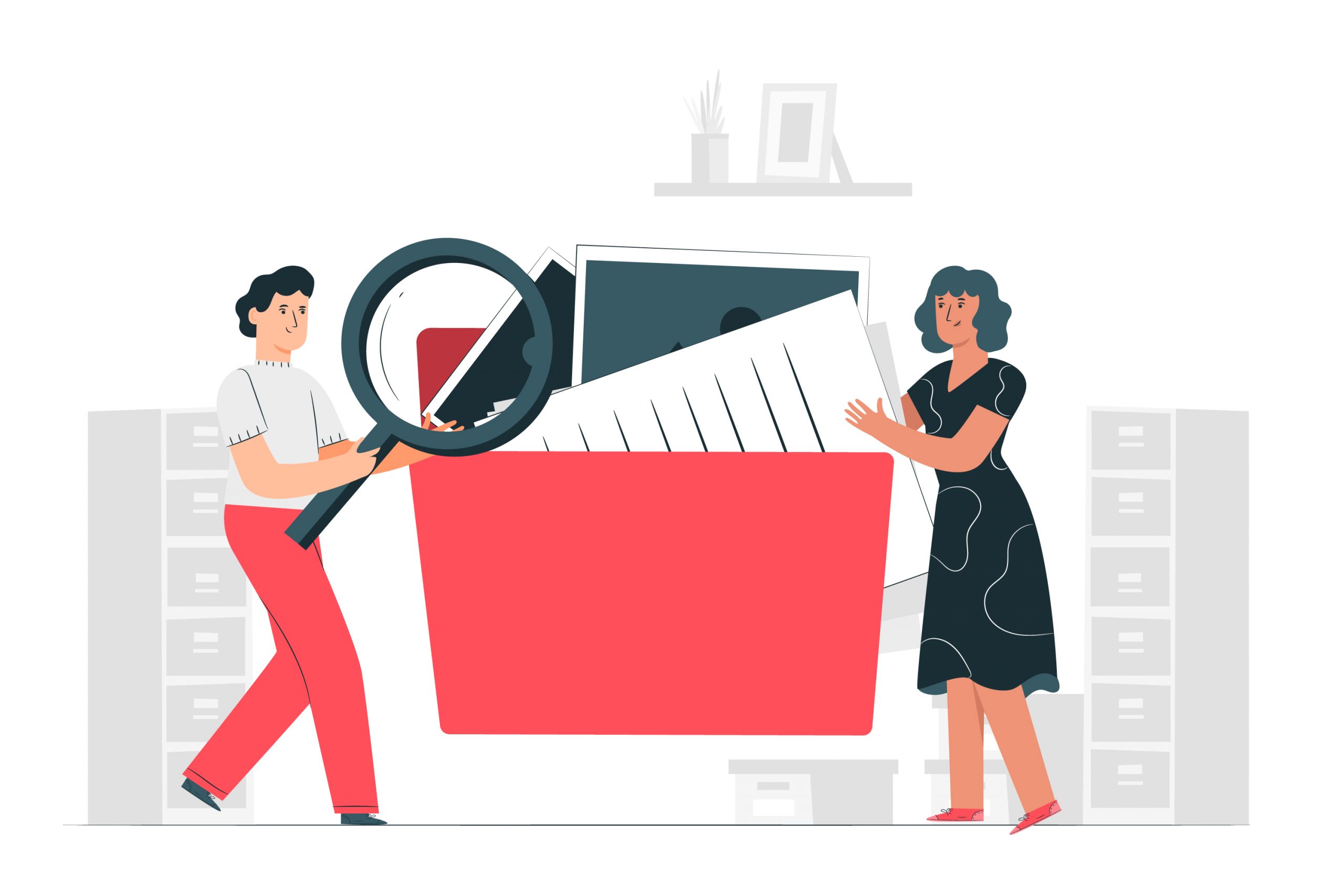Home Decor
Preserving Wood Quality: The Importance of Monitoring Moisture Levels

Wood, a timeless material, has been a cornerstone of construction, furniture, and various crafts for centuries. Its versatility and durability make it a preferred choice in countless applications. However, to ensure its longevity and quality, it is crucial to pay attention to one often overlooked aspect: moisture levels. know the significance of monitoring wood moisture levels and how it plays a pivotal role in preserving the integrity of this natural resource.
Understanding the Impact of Moisture on Wood
Wood is hygroscopic, meaning it readily absorbs and releases moisture in response to changes in the surrounding environment. This inherent quality makes it susceptible to expansion and contraction, affecting its structural stability and overall quality. Excessive moisture content can lead to several issues, such as:
1. Dimensional Changes
Wood swells when it absorbs moisture and shrinks as it dries. These constant changes can result in warping, cupping, or twisting, compromising the structural integrity of wooden objects.
2. Decay and Rot
High moisture levels create a conducive environment for fungi and bacteria to thrive, leading to wood decay and rot. This not only weakens the material but also poses a serious threat to the longevity of any wooden structure.
3. Pest Infestation
Moist wood attracts insects like termites and carpenter ants, which can cause irreparable damage. Regular monitoring of moisture levels can help prevent infestations and protect the wood from these destructive pests.
The Role of Wood Moisture Meters
In the quest to preserve wood quality, monitoring moisture levels becomes indispensable (source: Lekto’s article about wood moisture meters). One of the most effective tools for this purpose is the wood moisture meter. This handheld device provides accurate and instant readings of the moisture content within the wood. Here’s why it’s a game-changer:
- Precision in Measurement: Wood moisture meters offer precise measurements, allowing users to assess the exact moisture content in a specific piece of wood. This precision is vital for making informed decisions regarding drying, treatment, or further processing.
- Preventing over-drying: While moisture is detrimental to wood, so is excessive drying. Over-drying can lead to brittleness and other structural issues. A wood moisture meter helps prevent this by ensuring that the wood retains a healthy moisture balance.
- Early Detection of Issues: Regular monitoring with a moisture meter enables early detection of moisture-related problems. Identifying issues at an early stage allows for timely intervention and prevents extensive damage.
- Quality Control: For manufacturers and craftsmen, maintaining consistent wood moisture levels is crucial for ensuring the quality of finished products. Wood moisture meters aid in quality control by verifying that the wood used meets the desired moisture content standards.
The Different Types of Wood Moisture Meters
Wood moisture meters come in various types, each catering to specific needs and preferences. Understanding the distinctions among these types is essential for choosing the right tool for the job:
1. Pin-Type Moisture Meters
- How they work: These meters use two metal pins that penetrate the wood surface to measure the electrical resistance between them.
- Pros: Accurate readings, suitable for different wood species.
- Cons: Leaves small holes in the wood, which may not be desirable for finished products.
2. Pinless Moisture Meters
- How they work: Utilizing electromagnetic wave technology, pinless meters scan the wood surface without causing any damage.
- Pros: Non-destructive, ideal for finished wood products.
- Cons: Less accurate at measuring the moisture content in dense wood.
3. Hybrid Moisture Meters
- How they work: Combining features of both pin-type and pinless meters, hybrids offer versatility and accuracy.
- Pros: Versatile, suitable for various applications.
- Cons: May be bulkier and more expensive compared to other types.
4. Grain Moisture Meters
- How they work: Designed specifically for measuring the moisture content in grains, these meters may not be as accurate for wood.
- Pros: Ideal for agricultural purposes.
- Cons: Limited accuracy for wood moisture measurement.
Best Practices for Using Wood Moisture Meters
To maximize the effectiveness of wood moisture meters, it is essential to follow best practices in their usage. Here are some guidelines to ensure accurate readings and reliable results:
1. Calibration
- Importance: Regular calibration is crucial for maintaining the accuracy of the moisture meter.
- How to do it: Follow the manufacturer’s instructions for calibration using a reference standard.
2. Placement of Probes
- Pin-Type Meters: Insert the pins into the wood’s surface at different depths for a more accurate reading.
- Pinless Meters: Ensure proper contact between the sensor plate and the wood surface.
3. Sampling Technique
- Representative Samples: Take moisture readings from multiple locations, especially for large or irregularly shaped pieces of wood.
- Avoid Knots and Resin Pockets: These areas can give false high readings.
4. Environmental Conditions
- Stabilize Temperature: Moisture readings can be influenced by temperature, so try to stabilize the wood and the meter at a consistent temperature.
- Prevent External Moisture: Avoid taking readings in conditions of high humidity, as external moisture can affect the results.
Importance of Monitoring Moisture in Different Wood Applications
Whether you are a woodworker, a builder, or a homeowner, understanding the significance of monitoring moisture levels in various wood applications is crucial for preserving its quality and integrity.
1. Construction
- Importance: Moisture content affects the dimensional stability of structural wood components.
- Application: Use wood moisture meters during construction to ensure the moisture content of framing lumber is suitable for the environment.
2. Furniture Making
- Importance: Wood with improper moisture content can lead to cracks, warping, or joint failures in furniture.
- Application: Test the moisture levels of lumber before crafting furniture pieces and monitor throughout the production process.
3. Flooring Installation
- Importance: Inconsistent moisture levels can cause the flooring to buckle or warp.
- Application: Measure the moisture content of both the subfloor and the flooring material before installation to prevent future problems.
4. Woodworking and Crafting
- Importance: Woodworkers need to ensure that their materials are suitable for the intended project.
- Application: Regularly check the moisture content of wood stock to avoid issues during shaping, carving, or finishing.
Conclusion
In the world of wood, where tradition meets innovation, preserving the quality of this timeless material is paramount. Monitoring moisture levels using advanced tools like wood moisture meters ensures that wood remains structurally sound and aesthetically pleasing for generations to come. As you embark on your woodworking or construction projects, remember that the key to longevity and durability lies in the details – and this case, the moisture content of the wood.
Whether you are a seasoned professional or a DIY enthusiast, incorporating the use of a wood moisture meter into your toolkit is a small investment that pays off in the long run. As the saying goes, “Measure twice, cut once,” and in the realm of woodwork, measuring moisture content is an integral part of the precision required for outstanding results.

Home Decor
Airport Wellness Corners Where Fitness Equipment Movers Los Angeles Keep Shift Changes Smooth

Airports run on clockwork and caffeine, so tiny wellness corners can feel like secret cheat codes for tired shoulders. When a shift flips, bodies do not magically reset, so a few smart stations with bikes, stretch tools, and compact strength gear can help. Midway through the plan sits this link as a practical reference https://beezeemovers.com/fitness-equipment-movers-in-los-angeles and it points to the kind of specialized handling that keeps schedules intact. The goal is simple: calm set ups, fast swaps, and spaces that feel welcoming, not like a loud showroom. It also helps to treat the corner like a lounge, not a punishment for skipping leg day. A card with three quick moves and a timer helps, so it stays easy at 5 a m. Even a small fan and calming scent can shift the mood.
How Can A Terminal Make Recovery Feel Effortless
Think of it like adding a pit stop to a long race, except nobody is wearing a bib and the finish line keeps moving. A narrow break room can still host a foldable bike, resistance bands, and a mat that does not slide, as long as access paths stay clear and noise stays low. Placement matters, too, as staff will use what they can reach without negotiating carts, doors, and security lanes. A simple rule works: if it takes more than a minute to start, it will collect dust. If the space sits near a break table, even better. People will stretch while coffee cools. And if the gear looks clean and simple, it feels safe to touch, and that matters.
The Quiet Logistics Behind The Curtain
Moving heavy gym gear through secure corridors is less about brute force and more about etiquette. Routes are timed around cleaning windows, baggage surges, and that brief calm when a gate finally exhales. Protective wraps, floor runners, and clean gloves keep the vibe professional, and the result is a set up that feels almost invisible.
- Schedule roll ins between flights and shift peaks.
- Use soft wheels that respect polished terminal floors.
- Keep fasteners bagged and labeled for quick reassembly.
- Test clearances for doors, ramps, and tight turns.
After the gear lands, a quick wipe down and a sanity check on bolts keeps everything ready for real use, not just photos.
What Makes These Micro Gyms Actually Get Used
It is not the fanciest machine, it is the feeling. Staff lean into stations that offer relief without asking for a full outfit change or a thirty-minute commitment. Add signage that reads like a friendly nudge, not a lecture, and suddenly the corner becomes part of the routine. Even better, rotate one small item monthly so the space stays fresh without becoming clutter. One more trick is lighting. Harsh fluorescents make everything feel like an inspection, while warmer bulbs make the corner feel like permission. Add a small hook for lanyards and keys, and the experience stops being awkward.
Shift Changes End With Less Ache And More Air
When the swap happens, the room should invite a reset in the same way a good playlist smooths a long drive. A couple of minutes on a compact cardio unit, a stretch sequence, and a sip of water can turn grumpy fatigue into workable calm. And because airports never sleep, the best layouts favor low sound, clean lines, and quick shutdowns so the next crew inherits a space that feels so cared for. Done right, the corner becomes a morale boost that travels crew to crew. It does not replace sleep, but it can save the last hour of a shift from feeling endless. That is the quiet win: a healthier handoff, done with respect for time and bodies.
Home Decor
Keep the Heat On: Why November Is the Smartest Month for Boiler and Heating Checks

As the nights draw in and the temperature drops, it’s officially boiler season. November is when many households across the UK switch their heating back on for the first time in months and realise something’s not quite right. Maybe the radiators are slow to heat up, the water’s lukewarm, or the boiler makes a strange noise.
That’s exactly why November is the best time to arrange a boiler service and make sure your heating and hot water system is ready for winter. A quick check now can prevent breakdowns, improve efficiency, and keep your home warm when you need it most.
Why November Is the Perfect Month to Book
1. The Weather’s Cool but Not Freezing Yet
November sits in that ideal middle ground between mild autumn and freezing winter. Engineers tend to be easier to book, and you can have your system checked before demand peaks. Once December hits, call-outs start to surge, and getting an appointment can take longer. Taking care of it now means you’ll be prepared for the colder weather ahead.
2. Catch Problems Early
During summer, your boiler spends months barely ticking over, providing only hot water. That downtime might seem harmless, but it can allow parts to seize or minor faults to develop unnoticed. When the heating finally comes back on, those little issues often turn into sudden faults.
A check in November helps to identify problems like low pressure, sticky valves, or weak pumps before they cause bigger headaches. It’s the perfect time to give your boiler a quick health check so it can run reliably all winter.
3. Improve Efficiency and Lower Energy Bills
An efficient heating system can make a noticeable difference to your energy costs. When a boiler is properly maintained, it doesn’t need to work as hard to reach the same temperature, which means it uses less gas. During a routine visit, the engineer will test performance, clean the internal parts, and make sure everything’s running as efficiently as possible.
Even simple adjustments, like balancing radiators or topping up pressure, can help your heating work faster and more evenly. A well-maintained system also produces less wear on parts, reducing the chance of breakdowns later in the season.
4. Keep Your Home and Family Safe
A yearly check isn’t just about comfort, it’s also about safety. Boilers that haven’t been serviced in a while can become a hidden hazard, particularly if the flue, seals, or ventilation aren’t working as they should. A trained engineer will inspect these areas carefully and test for carbon monoxide leaks.
Carbon monoxide is invisible and odourless, so prevention is key. Making sure your system is running safely gives peace of mind that your home is protected all winter.
5. Keep Your Warranty and Insurance Valid
It’s easy to forget that most boiler warranties depend on regular servicing. If you skip a year, your cover could lapse without you realising. The same is true for many home insurance policies, which often expect proof of maintenance. Booking your annual service in November helps you stay on top of both, so you’re not caught out if something does go wrong later.
Keeping a simple service record is a smart habit that protects both your warranty and your wallet.
What’s Included in a Professional Check
If you’ve never seen what happens during a boiler inspection, it’s simpler than you might think. A professional engineer will:
- Inspect the boiler and surrounding pipework for leaks or corrosion
- Check the flue to make sure it’s safely removing waste gases
- Clean the burner, heat exchanger and ignition components
- Test safety controls and carbon monoxide levels
- Confirm the correct gas pressure and overall performance
The whole process usually takes under an hour, but it can make a big difference to the way your system performs throughout winter.
Simple Checks You Can Do Yourself
You don’t need to wait for an engineer to do a few quick checks around the house:
- Look at the pressure gauge; it should read between 1 and 1.5 bar when cold, or within the green zone if your boiler uses colour indicators.
- Bleed radiators if they have cold spots to remove trapped air
- Turn your heating on for a short while to make sure everything is working smoothly
- Check for any leaks or damp patches around visible pipework
- Listen for any rattling or whistling noises that might indicate trapped air or sludge
These small steps can keep your system running efficiently and help you spot potential issues early. If something seems unusual, note it down and mention it when you book your boiler service.
Why an Annual Check Makes Sense
Booking a service each year has long-term benefits. It helps you avoid the inconvenience of a sudden breakdown, but it also improves overall system performance. Regular maintenance keeps parts moving freely, improves safety checks, and ensures your boiler runs efficiently, which can lower energy consumption over time.
A well-looked-after system can last several years longer than one that’s neglected. It’s also better for the environment, as efficient heating uses less energy and reduces emissions.
Don’t Wait for the Cold Snap
It’s easy to delay a boiler check until something stops working, but by then you’ll be competing with everyone else for appointments. November gives you the chance to stay ahead, book a convenient time, and make sure your heating system is fully ready for winter.
A short visit from a qualified engineer now means no unexpected cold mornings, no last-minute panic, and a warm, comfortable home for the months ahead. It’s a small job that makes a big difference to how your home feels.
Home Decor
How to Choose Strata Painting Services in London

London is home to countless high-rise apartments, office complexes, and historic buildings, all requiring regular upkeep to maintain their charm and durability. One crucial aspect of property maintenance is strata painting, which ensures interior and exterior shared spaces remain visually appealing and well-protected.
Unlike standard painting jobs, strata painting involves special coatings, weatherproofing, and compliance with strict safety regulations to meet the needs of multi-unit buildings.
With London’s frequent rainfall, pollution, and varying architectural styles, choosing a reliable strata painting service isn’t just about aesthetics—it’s about long-term protection and value preservation.
Whether it’s a modern glass-covered skyscraper in Canary Wharf or a centuries-old residential complex in Kensington, the right painting professionals can help enhance curb appeal while ensuring structural integrity.
What Does Mean By Strata Painting?

Strata Painting is a specialized painting service designed for multi-unit properties like apartment buildings, townhouses, and commercial complexes. It ensures that shared areas such as hallways, staircases, lobbies, and exteriors are well-maintained and protected against weather damage.
For instance, in central London, high-rise buildings often require weatherproof coatings to withstand frequent rain and pollution. In contrast, heritage buildings in Westminster may need specialized paints to preserve their original look while complying with heritage protection laws. This makes strata painting essential for maintaining property aesthetics, longevity, and value.
Key Factors of Choosing Strata Painting Services in London

1. Use of Drones for Building Inspections Before Painting
Drones have revolutionized building inspections by providing aerial views of high-rise strata properties, allowing for detailed assessments of structural damage, peeling paint, and moisture penetration. This reduces the need for scaffolding-based manual inspections, cutting costs and improving safety. According to a 2023 study, over 40% of London’s property management firms have integrated drone inspections for maintenance planning, proving its growing popularity in the industry.
2. Use of Biodegradable and Non-Toxic Paints
With stricter UK environmental regulations, London-based strata painting companies are shifting towards biodegradable, non-toxic, and low-VOC (Volatile Organic Compound) paints. These eco-friendly options improve indoor air quality while minimizing harmful chemical emissions. Reports indicate that over 60% of newly developed residential buildings in London now use low-VOC paints to meet sustainability standards.
3. Green Certifications for Environmentally Responsible Contractors
Many strata painting contractors in London seek BREEAM (Building Research Establishment Environmental Assessment Method) and LEED (Leadership in Energy and Environmental Design) certifications to showcase their commitment to sustainability. Buildings with BREEAM-certified painting solutions have been shown to reduce energy consumption by up to 25% annually, making them an attractive option for property developers and management companies.
4. Self-Cleaning and Heat-Reflective Coatings
With London’s variable climate, self-cleaning coatings have gained traction due to their ability to reduce dirt accumulation and grime buildup on painted surfaces. These coatings, often made with titanium dioxide-based formulas, break down organic dirt through photocatalysis. Similarly, heat-reflective coatings help reduce indoor cooling costs in London’s commercial buildings by reflecting UV rays. Studies indicate that heat-reflective paints can lower interior temperatures by up to 5°C, cutting energy expenses by 15-20% annually.
5. 3D Visualization Tools for Previewing Color Schemes
Choosing the right color scheme is a crucial decision in strata painting. 3D visualization tools allow property owners, managers, and residents to preview multiple color options and finish in real-time before painting begins. These tools, widely used by top painting contractors in London, help reduce color mismatches, improve client satisfaction, and streamline the decision-making process.
6. Automated Painting Equipment
Automation is transforming the strata painting industry by improving efficiency, safety, and consistency. High-rise buildings in London are increasingly adopting robotic painting systems that use precision-controlled spray mechanisms to coat large surfaces evenly. These systems reduce labor costs by up to 30% and enhance safety by minimizing human exposure to hazardous heights and harsh weather conditions.
7. Integration of Solar-Reflective Coatings to Reduce Energy Consumption
Solar-reflective coatings are gaining popularity in London’s high-rise and commercial strata projects. These coatings are designed to reflect UV radiation, preventing excessive heat absorption and reducing the reliance on air conditioning. Studies suggest that buildings treated with solar-reflective coatings can cut cooling costs by up to 20%, particularly in densely populated areas like Canary Wharf and Central London.
8. Smart Coatings with Antimicrobial Properties
Post-pandemic hygiene concerns have led to the widespread adoption of antimicrobial coatings in London’s residential and commercial strata properties. These advanced coatings inhibit bacterial and mold growth, making hallways, lobbies, and shared areas more hygienic. Popular in hospitals and commercial offices, these coatings are now being used in luxury residential complexes to improve indoor air quality and overall sanitation.
9. Water-Based Paints Instead of Oil-Based Solutions
Switching to water-based paints has significantly reduced pollution and carbon footprints in London’s painting industry. These paints dry faster, emit fewer chemicals, and are easier to clean up, making them a preferred choice for strata projects aiming to comply with environmental regulations. Data from the UK Green Building Council (UKGBC) indicates that over 70% of professional painting projects in London now use water-based coatings, marking a shift towards greener practices.
10. Recycling and Waste Reduction Initiatives
Many strata painting contractors now offer paint can recycling programs and waste reduction initiatives. Several London-based firms partner with recycling facilities to repurpose leftover paint, reducing landfill waste and promoting sustainability. This trend aligns with the UK government’s 2030 sustainability goals, pushing more companies to embrace eco-conscious disposal practices.
11. Automated Painting Equipment
Automation is transforming the strata painting industry by improving efficiency, safety, and consistency. High-rise buildings in London are increasingly adopting robotic painting systems that use precision-controlled spray mechanisms to coat large surfaces evenly. These systems reduce labor costs by up to 30% and enhance safety by minimizing human exposure to hazardous heights and harsh weather conditions.
Common Challenges for Strata Painters in London
- Weather conditions: London’s high humidity and frequent rain require special coatings. Unpredictable weather patterns can delay painting schedules and increase drying time, making it essential to choose weather-resistant paints.
- Regulatory compliance: Following UK Work at Height Regulations 2005 and health and safety laws is mandatory. Additional permits may be required for buildings located in heritage areas or conservation zones.
- Minimal disruption: Painters must work efficiently around residents and businesses. This means planning schedules to avoid peak hours, working in phases, and using quick-drying, low-odor paints to reduce inconvenience.
- Access restrictions: High-rise and multi-story buildings require specialized access techniques such as rope access, scaffolding, or hydraulic lifts. Ensuring compliance with safety regulations is critical for worker safety.
- Specialized Coatings and Compliance: Buildings in London may require fire-retardant coatings, anti-mold treatments, or UV-resistant paints to comply with building safety and environmental standards.
- Surface Preparations: Addressing existing cracks, leaks, or damaged surfaces before painting begins is vital for long-lasting results. This may involve power washing, applying primers, and fixing structural defects.
- Tenant Communication: Informing tenants about timelines and expected disruptions is key to maintaining a positive relationship. Property managers must provide clear notices regarding paint odors, restricted access areas, and safety precautions to ensure cooperation.
- Logistics and Scheduling: Coordinating painting schedules with property managers and tenants is crucial to prevent delays. Large-scale projects require meticulous project management to allocate labor and resources effectively.
- Budget Constraints: Strata painting projects often operate on tight budgets. Proper cost estimation, avoiding hidden fees, and choosing cost-effective yet durable paint solutions can help balance quality and affordability.
-

 Business3 years ago
Business3 years agoThe Most Efficient Ways To Use The Best 6 Business Keynote Presentations
-

 Entertainment1 year ago
Entertainment1 year ago15 Best IPTV Service Providers in the UK 2025
-

 Apps and Software1 year ago
Apps and Software1 year agoStarbucks Partner Hours App Login Guide
-

 Tech4 years ago
Tech4 years agoIs Forecasting A Part Of Data Science?
-

 Economy4 years ago
Economy4 years agoWhat does it mean to Dream About Pennies?
-

 Entertainment1 year ago
Entertainment1 year ago10 Best Free Video Player Apps For Apple TV
-

 Entertainment7 months ago
Entertainment7 months agoExploring Moviesda 2025: Tamil Cinema’s Digital Hub for Streaming, Downloads & Digital Trends
-

 Entertainment3 years ago
Entertainment3 years agoHow To Enhance Your Viewing with Video Subtitle Support






























